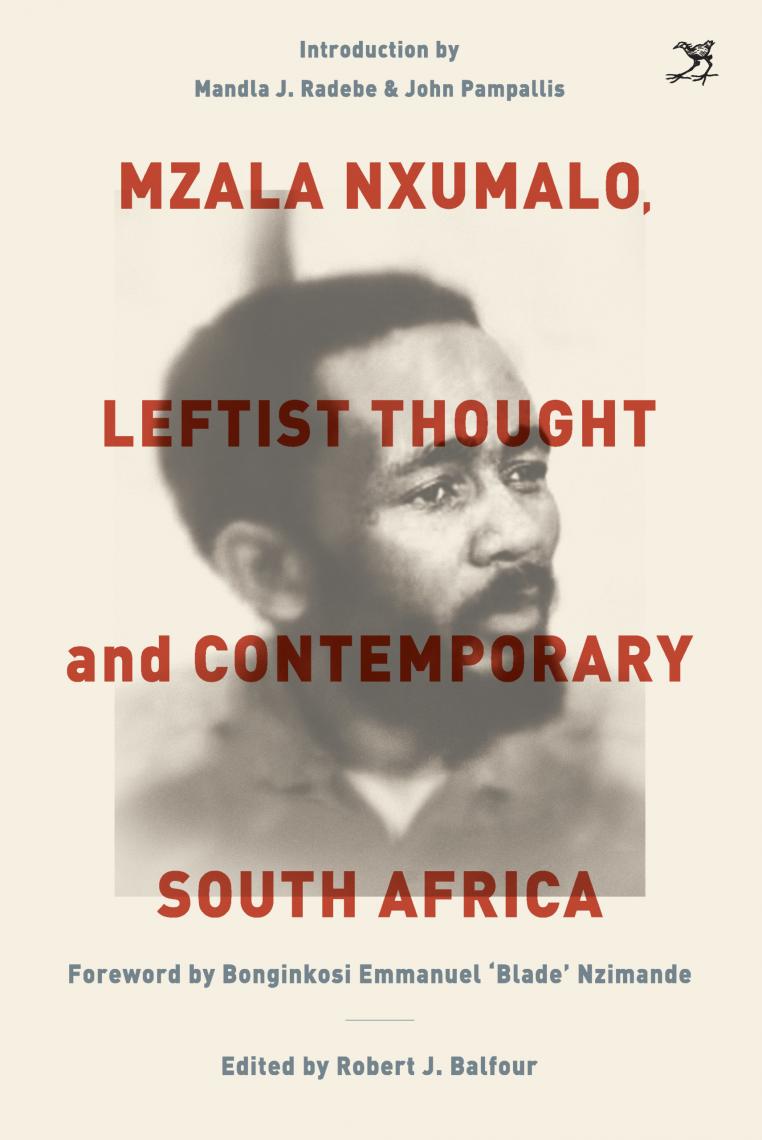Post-apartheid South Africa continues to have many unresolved problems and unfulfilled promises, despite significant progress in certain areas. A recently published book on the work of the late anti-apartheid activist and intellectual, Mzala Nxumalo, aims to make important contributions to the intellectual work that lies ahead for South Africa in current troubling times – particularly in the context of contemporary leftist politics.
The book, Mzala Nxumalo, Leftist Thought and Contemporary South Africa (2023), published by Jacana Publishers, was edited by Prof Robert Balfour, deputy vice-chancellor for Teaching and Learning at the North-West University (NWU), and features a leftist critique of capitalism in South Africa by community activists and academics. This new book owes its origin to selected hitherto unpublished contributions that featured initially at conferences and seminars organised by the Mzala Nxumalo Centre for the Study for South African Society, which was founded in 2015.
It acknowledges the relevance, scholarly legacy and intellectual debt owed to Nxumalo. He was one of the leading Marxist intellectuals to emerge from the 1976 student uprisings against the apartheid regime and is perhaps most famously known for his book on Mangosuthu Gatsha Buthelezi (Zed Books, 1988). Nxumalo’s death in 1991 left a void in both the African National Congress (ANC) and the South African Communist Party (SACP).
In his review of the book, prominent critic Richard Pithouse said: “These wide-ranging essays reinvigorate left analysis and reaches back to engage the present. It is an important contribution to sustaining a left intellectual tradition through dialogue with the best ideas from around the world.”
The book draws together contributors from a range of perspectives. Some of them are from universities, political movements, workers’ organisations and civic society, who all have in common the need to offer a critique of post-apartheid democracy in South Africa. It includes contributions by the late Percy Ngonyama, John Pampallis, Mandla Radebe, Sam Matiase, Noel Solani, Alex Mashilo, Pat Horn, Gunnett Kaaf, Bernard Dubbeld, Vladimir Shubin, Rasigan Maharaj and Sigfried Tivana.
Prof Balfour emphasises that Nxumalo remains a prominent intellectual in South African socialism and Marxist studies. “His work explored the role of the state in relation to the community from a range of perspectives. What emerged is a concern with how the state has been used to serve the interests of the dominant ruling class, at the expense of a majority who remain vulnerable, unemployed and poor.
“The book also explores how the ANC and SACP in South Africa have drawn from international solidarity in the lead-up to national liberation, but how in the aftermath of 1994, cohesion and direction have been difficult to sustain.
“For me, the most important insight associated with the book is the need of a sustained critique of the post-apartheid state and the neoliberal capitalist global agenda. That critique and agenda need to come together in an analysis of what has happened in South Africa in the post-democracy leftist movement and what has happened in the post-liberation moment. We must ask ourselves what we have managed to achieve and what we did not achieve. This is why this book is especially relevant now.”
He says Nxumalo is particularly important now due to a reawakening, not only in the media but also in discourse, of the need for a more a sustained critique of some of the outcomes of South Africa’s policies – intended or not – over the past thirty years or so.
For more information, visit: https://jacana.co.za/product/mzala-nxumalo-leftist-thought/

The book, Mzala Nxumalo, Leftist Thought and Contemporary South Africa, reinvigorates leftist analysis.

Prof Robert Balfour, deputy vice-chancellor for Teaching and Learning at the NWU, edited the volume on the work of Mzala Nxumalo.
